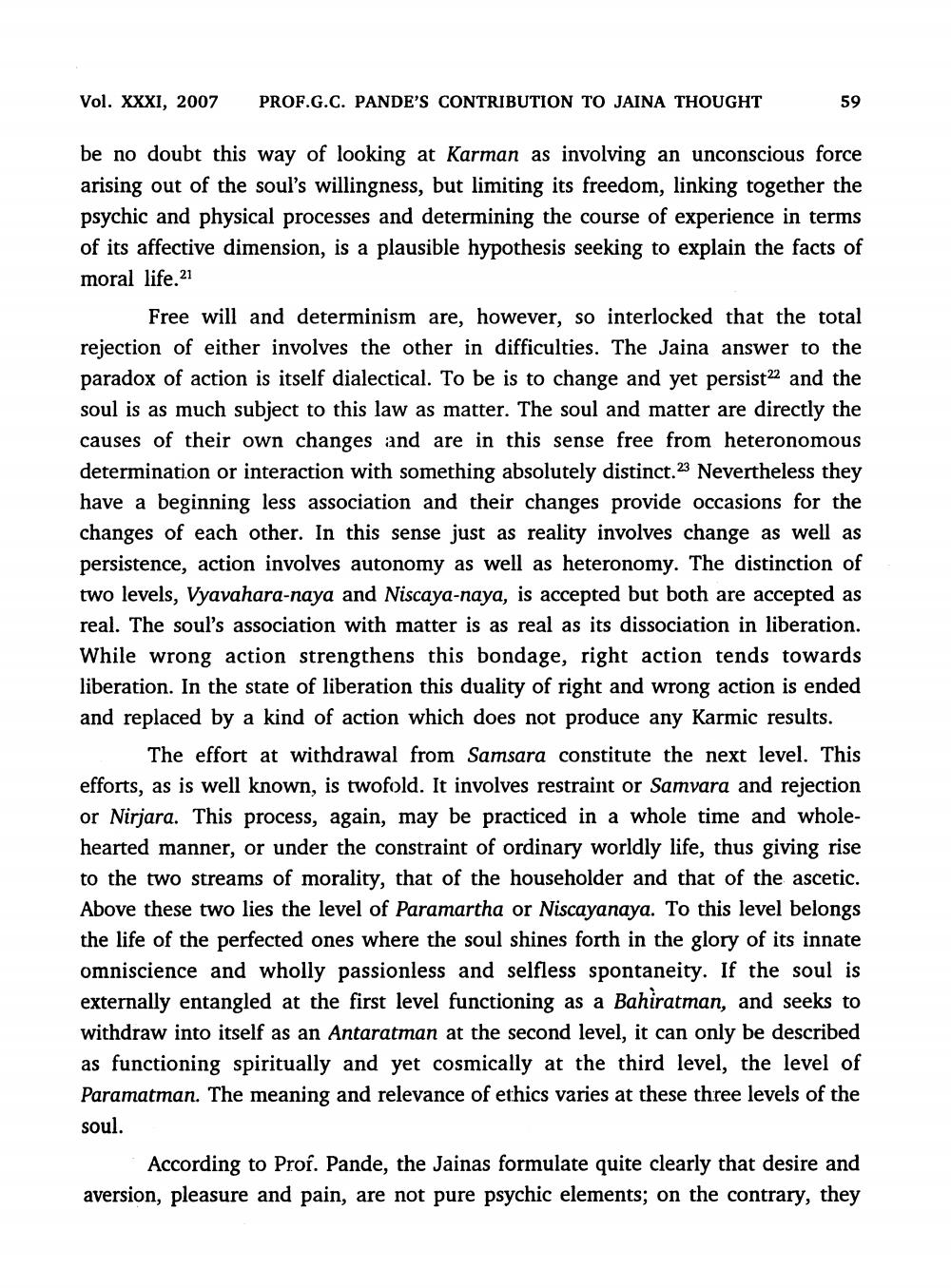________________
Vol. XXXI, 2007
PROF.G.C. PANDE'S CONTRIBUTION TO JAINA THOUGHT
59
be no doubt this way of looking at Karman as involving an unconscious force arising out of the soul's willingness, but limiting its freedom, linking together the psychic and physical processes and determining the course of experience in terms of its affective dimension, is a plausible hypothesis seeking to explain the facts of moral life.21
Free will and determinism are, however, so interlocked that the total rejection of either involves the other in difficulties. The Jaina answer to the paradox of action is itself dialectical. To be is to change and yet persist22 and the soul is as much subject to this law as matter. The soul and matter are directly the causes of their own changes and are in this sense free from heteronomous determination or interaction with something absolutely distinct.23 Nevertheless they have a beginning less association and their changes provide occasions for the changes of each other. In this sense just as reality involves change as well as persistence, action involves autonomy as well as heteronomy. The distinction of two levels, Vyavahara-naya and Niscaya-naya, is accepted but both are accepted as real. The soul's association with matter is as real as its dissociation in liberation. While wrong action strengthens this bondage, right action tends towards liberation. In the state of liberation this duality of right and wrong action is ended and replaced by a kind of action which does not produce any Karmic results.
The effort at withdrawal from Samsara constitute the next level. This efforts, as is well known, is twofold. It involves restraint or Samvara and rejection or Nirjara. This process, again, may be practiced in a whole time and wholehearted manner, or under the constraint of ordinary worldly life, thus giving rise to the two streams of morality, that of the householder and that of the ascetic. Above these two lies the level of Paramartha or Niscayanaya. To this level belongs the life of the perfected ones where the soul shines forth in the glory of its innate omniscience and wholly passionless and selfless spontaneity. If the soul is externally entangled at the first level functioning as a Bahiratman, and seeks to withdraw into itself as an Antaratman at the second level, it can only be described as functioning spiritually and yet cosmically at the third level, the level of Paramatman. The meaning and relevance of ethics varies at these three levels of the soul.
According to Prof. Pande, the Jainas formulate quite clearly that desire and aversion, pleasure and pain, are not pure psychic elements; on the contrary, they




